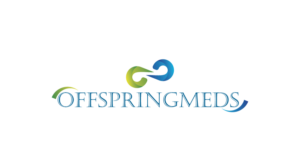Printed credentials may seem like a low-tech component of business operations, but the industry is rapidly evolving. Technology, sustainability, and hybrid work demands have all reshaped how organisations design and use printed materials such as name cards, name tags, and access cards. Companies that overlook these trends risk appearing outdated or inefficient. Whether you’re in HR, events, or operations, staying updated helps improve workflows and maintain a modern brand image.
From new material choices to smarter identification methods, these are the top five trends reshaping how businesses handle ID printing.
1. Smart Cards for Seamless Integration
The biggest transformation in plastic card printing services in Singapore comes from the shift towards intelligent cards. Beyond simply displaying names or designations, many cards now feature QR codes or embedded chips. These cards allow staff to access secured areas, sign in to workstations, or log attendance digitally. This hybrid functionality saves time and enhances security.
In practical terms, this means a card that once served a single use now supports access control, time tracking, and contactless interactions. Events and corporate offices benefit significantly from the streamlined entry and data capture these smart cards enable.
2. Sustainable Printing is Now Standard
Environmental responsibility is no longer optional for forward-thinking businesses. Traditional PVC materials used in name tags and ID cards are being phased out for recycled or biodegradable alternatives. Likewise, name card printing now commonly uses FSC-certified paper, soy-based inks, or reduced-waste digital methods.
Businesses also seek reusable name tags, particularly for events, where single-use tags used to be the norm. This shift not only lowers environmental impact but also aligns with the sustainability goals of clients, staff, and stakeholders.
3. Instant, On-Demand Customisation
In fast-moving industries, the ability to print cards and tags instantly is a growing priority. On-demand printing allows businesses to generate customised credentials as needed—be it a last-minute name card for a meeting or a temporary visitor pass for a site inspection.
Many vendors offering plastic card printing services in Singapore now support quick-turnaround jobs, often with minimal setup requirements. This flexibility is especially useful for events, retail operations, and rotating project teams where details change regularly.
4. Simpler Designs with Clear Purpose
The current design trend leans towards minimalism. Modern name cards feature clean fonts, high-contrast colours, and less clutter. The goal is clarity and quick readability. For access cards and name tags, design choices now support functionality such as easy scanning, visual identification from a distance, and compatibility with devices like QR readers and card swipers.
In high-security workplaces or healthcare environments, this emphasis on function improves safety and efficiency. Clean, well-organised layouts also reinforce a company’s professional image.
5. Hybrid Solutions for a Hybrid Workforce
With remote and hybrid work now the norm, organisations need ID solutions that accommodate varying work arrangements. Permanent staff might require high-durability cards with embedded technology, while contract workers might use printable paper badges or digital QR access.
The flexibility to mix and match formats is key. Companies are now adopting modular systems where reusable name tags, scannable passes, and custom-printed name cards coexist. A well-chosen mix reduces waste and ensures every team member, regardless of status, receives the appropriate level of access and representation.
Conclusion
The future of printed credentials isn’t just about ink and plastic—it’s about adaptability, function, and experience. Businesses that embrace these trends will position themselves as efficient, forward-thinking, and environmentally responsible. Whether you need basic name card printing or full-scale plastic card printing services in Singapore, aligning with these emerging practices ensures you stay ahead of operational and branding expectations.
To implement the latest in smart, sustainable ID solutions, contact Paclin Office and upgrade your printing processes today.

